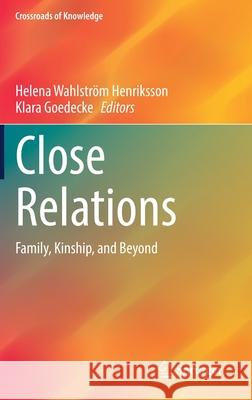Close Relations: Family, Kinship, and Beyond » książka
topmenu
Close Relations: Family, Kinship, and Beyond
ISBN-13: 9789811607912 / Angielski / Twarda / 2021 / 220 str.
Kategorie:
Kategorie BISAC:
Wydawca:
Springer
Seria wydawnicza:
Język:
Angielski
ISBN-13:
9789811607912
Rok wydania:
2021
Wydanie:
2021
Numer serii:
000471472
Ilość stron:
220
Waga:
0.50 kg
Wymiary:
23.39 x 15.6 x 1.42
Oprawa:
Twarda
Wolumenów:
01
Dodatkowe informacje:
Wydanie ilustrowane











